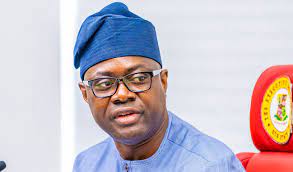Expectedly, for the third time, President Muhammadu Buhari, declined to give his assent to the 2018 Electoral Act Amendment, citing irregularities and draft issues as reasons for his refusal.
The rejection of the Electoral Amendment Bill, according to the Senior Special Assistant to the President on National Assembly Matters (Senate), Senator Ita Enang, was communicated to the National Assembly on August 30.
However, Enang said that the development would not, as many fear, affect the 2019 general elections because the observed draft inadequacies can be addressed by the National Assembly in few weeks time.
Enang said the areas of conflict that led to the President’s rejection of appending his signature to bill were on Sections 31, 34, 85 (1) among others.
A few of the outstanding issues, said Enang, are the cross referencing error in the proposed amendment to Section 18 of the Bill.
The appropriate amendment is to substitute the existing sub-section (2) with the proposed subsection (1A), while the proposed sub-section (1B) is the new sub-section (2A).
He said the proposed amendment to include a new Section 87 (14) which stipulates a specific period within which political party primaries are required to be held has the unintended consequence of leaving INEC with only nine days to collate and compile lists of candidates and political parties and manage the primaries of 91 political parties for the various elections.
He said: “This is because the Electoral Amendment Bill does not amend sections 31, 34 and 85 which stipulate times for the submission of lists of candidates, publication of lists of candidates and notice of convention andcongresses for nominating candidates for elections.
“For clarity….Clause 87 (14) states: “The dates for the primaries shall not be earlier than 120 days and not later than 90 days before the date of elections to the offices.
The Electoral Act 2010 referred to herein states; in Section 31: “That every Political Party shall not later than 60 days before the date appointed for a general election submit to the Commission the list of candidates the party proposes to sponsor at the elections.
“That the Commission shall at least 30 days before the day of the election publish a statement of the full names and addresses of all candidates standing nominated.
Section 85 (1) states, said Enang, that “a Political Party shall give the Commission at least Twenty-one days’ notice of any convention, congress etc., for electing members of its executive committees or nominating candidates for any of the elective offices.’’ Needless to add, Enang said that the Constitution or any written law does not allow a president or a governor to whom a bill is forwarded to by the legislature to edit, correct, amend or in any manner alter the provisions of any such bill to reflect appropriate intent before assenting to same.
Rather, they should assent in the manner it is or withhold assent.
Though the President has invited the Senate and House of Representatives to address these issues as quickly as possible to enable him grant his assent to the Electoral Amendment Bill, it remains to be seen when the meeting would take.
Of course, when the National Assembly submitted the corrected version of the Electoral Amendment Bill to the President for assent after it was first sent back because of errors that were detected in it, many had thought that the President will consider assenting to it as a matter of priority, especially considering the urgency of the Act with regards to the 2019 elections.
It is instructive to note the that the Independent National Electoral Commission (INEC) has already fixed September for political parties to commence their primaries while Electoral Act is the ground rule for the conduct of the elections.
But with the President yet to sign the electoral legislations, which the National Assembly submitted to him on the day the lawmakers went on their annual vacation, the situation can only be described as unfortunate.
But who should be blamed for the delay, the President or National Assembly? Well, if the observations highlighted by Enang are anything to be considered, the lawmakers must be blamed for the delay mainly because several sections were left open-ended while another could easily confuse and or overwhelm the INEC.
For example, the proposed amendment to include a new Section 87 (14) which stipulates a specific period within which political party primaries are required to be held has the unintended consequence of leaving INEC with only nine days to collate and compile lists of candidates and political parties and manage the primary elections of 91 political parties for the various elections.
This, if truth be told, is not pragmatic, unless if the intention is to cause chaos and confusion at the INEC and give room for illegal manipulations by parties and INEC, this section must be bettered.
Also faulty is the fact that the Electoral Amendment Bill does not amend sections 31, 34 and 85 which stipulate times for the submission of lists of candidates, publication of lists of candidates and notice of convention and congresses for nominating candidates for elections.
These sections (31, 34 and 85) should, ideally, not be so because these periods cannot, under any circumstances, be made to be open-ended mainly because electoral processes are time bound.
Many had said that it is the introduction of the PVC and the card reader that have now made it impossible to rig elections and with the introduction of the tracking device which is part of the Electoral Amendment Bill waiting President’s assent, rigging of elections has become a herculean task.
Of course, the importance of the Electoral Act cannot be over-emphasised as it is also intended to deal with the issues of the permanent voter’s card and card reader, among others.
Thus, it must be treated with utmost seriousness, dispassionately and unselfishly.
Agreed, now time is of the essence for the President to sign the Electoral Amendment Bill, but it must be concise, clear, prepared and presented to the President for his assent in the national interest
Blueprint gives you the latest Nigerian news in one place. Read the news behind the news on burning National issues, Kannywood, Videos and the Military



